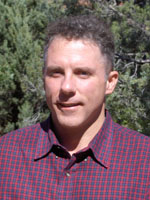
Harry Atwater
California Institute of Technology
Offering Unguarded Speculation
The first Gordon Conference I attended was called Physical Metallurgy; I was a postdoc at Harvard University. I was definitely thinking about my professional life as a scientist and teacher, since I was still young and unestablished. This was the first time I had ever been to a conference that was not a “hotel conference”–the kind of conference where people dressed up in suits and ties. It was revealing to me that you could actually approach senior, very visible people informally, go sailing with them, and talk to them at the same time. People were very approachable and willing to offer unguarded speculation.
When I have subsequently organized conferences, I think back to that very first Gordon Conference: it set the gold standard for what a scientific meeting should be in terms of the quality of the program, the quality of the discussion, and the way that young people can interact with senior scientists.
I was a little suspicious when I first went to a Gordon Conference that the time in the afternoons would be wasted. But I found it to be quite the opposite; the information density of the whole meeting was much higher than that of other scientific conferences.
Interacting with the senior people in metals at the Physical Metallurgy GRC was especially important for me because I got into materials science through the back door from physics and electrical engineering. Thanks to GRC, I was quickly exposed to new levels of analytical thinking about kinetic processes and materials. It was amazing to see a community of people who, without even writing down any equations, could make detailed models in their minds of things that electrical engineers had treated very descriptively. There was an implicit sense that this was a special meeting for the field. For me, attending GRC instilled a sense of rigor about modeling transformations in materials that had a significant impact on my research career.
The other great thing about Gordon Conferences is that there is a common vernacular, so the conversations can go very fast. People do not offer a lot of preparatory and didactic remarks, nor are they needed for scientific discussion to move ahead. You can start a conversation, safely assuming that everybody knows the events of the past year. Physical metallurgy is a field small enough and the focus of the conference is sharp enough that the discussion can move quickly. Beyond GRC, I have only had the same kind of energetic experience when working closely with international collaborators on a specific project. GRC introduced me to a format where everyone is already up to speed on an issue; you jump right in, and you immediately go at it at a very high level.